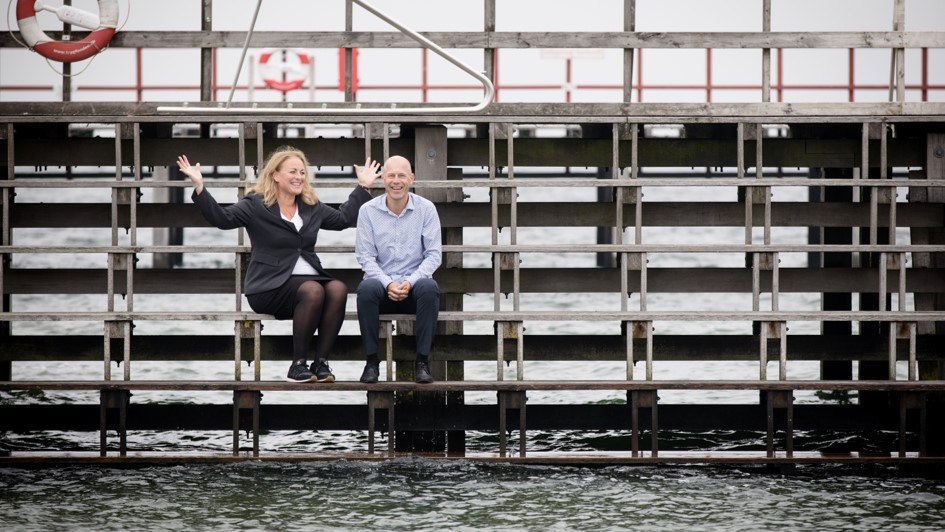Innovation Fund Denmark

Innovation Fund Denmark
19.10.2022, www.innovationsfonden.dk
The MedTech company Cerebriu, University of Copenhagen and Danish hospitals receive million-dollar investments from the Innovation Fund Denmark for a project that will deliver the world’s first solution to significantly improve MRI-based identification of strokes as well as improve efficiency in treatment and clinical workflows.
Worldwide, About 5.5 million people die from stroke each year, and approximately 50 percent of survivors are left chronically disabled. Quick and accurate diagnosis of suspected stroke is essential to reduce the risk of death and life-changing disabilities.
A new research project led by the Danish radiological MedTech provider, Ceribriu, will now develop a solution for this.
Together with the University of Copenhagen, Odense University Hospital and Herlev & Gentofte Hospital, the company, which develops AI tools to automate radiological workflows, has received a grant of DKK 13.4 million from the Innovation Fund Denmark for the Stroke research project.
The goal of the project is to demonstrate the real-world effectiveness of AI solutions to improve patient access and care, along with optimizing clinical workflow efficiency.
A decision support tool for evaluating MR-images
The parties will jointly develop the world’s first clinical MR-based, diagnostic 24/7 solution for patients who are suspected of acute stroke. Performing in-process MRI image analysis while the patient is still in the scanner enables real-time decision making to optimize workflow efficiency, patient throughput and quality of care.
If successful, this project will provide superior door-to-needle time to the current MRI workflow for hyperacute patients, thereby improving patient selection for treatment and reducing recovery time for acute stroke patients.
– MRI is often seen as a more complex and time-consuming alternative to CT, says Professor Mads Nielsen, Department of Computer Science at the University of Copenhagen.
– This project will demonstrate how the use of AI software such as Cerebrius’ imaging solution can break down these perceptions and increase workflow efficiency.
– We need rapid and specific identification of stroke 24/7 to deliver time-critical treatment that is important for a good outcome for patients. This is what Cerebriu can help us clinicians with. First-line MRI scanning is an important tool for early and more specific identification of stroke. Cerebriu provides radiographers, radiologists and treating neurologists with a decision support tool to evaluate MR images and assign the right treatment to the right patients more easily and quickly. This enables a better relationship between quality and efficiency, says Professor Christina Rostrup Kruuse, Herlev & Gentofte Hospital.
Better tools for stroke detection are imperative
– Patients with stroke need rapid diagnosis and treatment for the best clinical outcome. Apollo from Cerebriu improves the treatment process at existing ‘MRI-first’ clinics. In addition, this project will advocate for MRI-first and overcome the perceived practical barriers to adoption by supporting clinical staff throughout their entire workflow, says Professor Ole Graumann, Radiologist at Odense University Hospital & head of UNIFY – the Research and Innovation Unit for Radiology, Southern Denmark University.
– Our solution will offer an opportunity for radiology and acute care units to take full advantage of modern technology, says Matthew Liptrot, PhD, Head of Data and Analytics at Cerebriu,
-By leveraging the latest deep learning research, Cerebriu will radically expand its AI software’s existing capabilities to identify, classify and triage Stroke while the patient is still in the scanner, thereby becoming a comprehensive solution that will bring real impact to clinical workflow. ”
About Cerebriu
Cerebriu aims to improve diagnostic imaging workflow efficiency, quality of care and patient outcomes. Cerebrius’ software solution, Apollo, aims to address this by automating image acquisition protocols and patient triage during MRI brain scans. Ultimately, this can result in improved productivity, prioritizing the right patients at the right time with less strain on clinicians.

 Better School Start
Better School Start